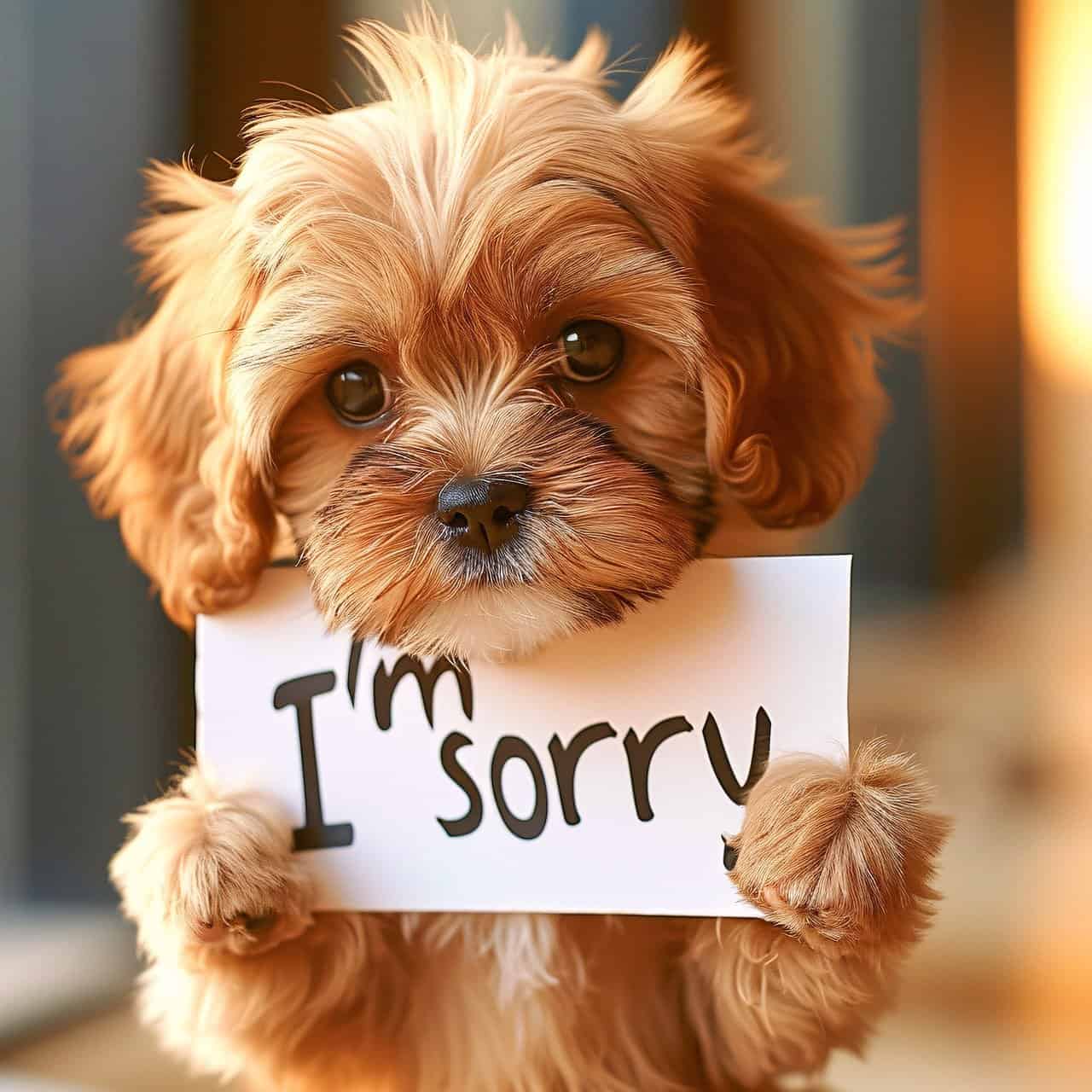Saying “I’m sorry” shouldn’t be hard. When we say or do something that hurts someone else, then we as humans should own it, apologize for it, and try to make it right. But, many public apologies seem to miss this relatively easy target. Is someone sincerely apologizing when their apology apologizes for the wrong thing?
Many publicly issued apologies rely on forms of these tropes:
- “I apologize for how this turned out …”
- “I’m sorry if you were offended …”
- “I regret that my comments have been misconstrued …”
- “I would never want someone to feel that way …”
- “It hurts me to see this happen …”
What are these speakers apologizing for? Because it isn’t something they did or said. It’s for what came after, as though the laws of cause and effect did not apply.
Before we analyze these apology tropes, let’s be clear about one thing. I try not to question the character or motivations of people, including those who are issuing an apology. I assume apologies are sincere and intended to convey some degree of responsibility or remorse.
However, the plain language of many apologies leaves their speakers’ sincerity open to interpretation.
Take the recent apology from NFL player Azeez Al-Shaair following a play that knocked Jacksonville quarterback Trevor Lawrence out of a recent game. Al-Shaair was flagged for a penalty, ejected from the game, and ultimately suspended for three more games. Lawrence’s season is over.
“To Trevor, I genuinely apologize to you for what ended up happening,” Al-Shaair wrote as part of a longer statement. “Before the game, we spoke and I told you how great it was to see you back out on the field and wished you well. I would never want to see any player hurt because of a hit I put on them, especially one that was ruled ‘late’ or ‘unnecessary.'”
Again, I am not arguing Al-Shaair’s apology is insincere. What I am arguing is that this choice of words left him open to having his sincerity questioned because his apology includes two of the tropes listed above.
The first two tropes deflect responsibility and consequence away from the apologizer and toward the victim. Trope 1 blames the victim for their failure to avoid the consequence while Trope 2 blames the victim’s sensitivity. Neither places the blame on the apologizer.
The next two tropes again deflect responsibility away from the apologizer but this time toward a nebulous third party. Trope 3 places the blame on an error in interpretation made by an unnamed other group of people aside from the victim. Trope 4 places the blame on an individual “somebody” acting as a stand-in to the victim.
None of these tropes contains an apology for the act itself or the apologizer’s role in the action.
Trope 5 goes even further in the wrong direction by making the apologizer the victim. The speaker’s works literally express their own pain caused by seeing something happen to someone else.
In our example, Al-Shaair’s words track with the first and last tropes. Even if he is sincere – and I’m not saying he isn’t – the phrasing means something different.
Let’s do a quick thought experiment. Imagine someone close to you possesses a fragile family heirloom that breaks. When that happens, we might say, “I’m sorry your grandmother’s vase got broken.”
With those words, we empathize with their pain, loss, or struggle. It’s a human thing to do. When we say these words, we are not taking responsibility for whatever caused their pain, loss or struggle, and the person we’re speaking to should not be holding us responsible.
But what if we broke the vase or our action led to the vase’s breaking?
“I’m sorry your grandmother’s vase got broken” doesn’t cut it as an apology. These words essentially deny our role in the breakage. They blame the vase for breaking, the grandchild for placing the vase in harm’s way, or the grandparent for being so sentimental about the vase that they’re now distraught.
What should we say instead? “I’m sorry I broke your grandmother’s vase.”
Cause and effect are linked with these words because they apologize for the action, not just the result, and our role in the action.
So, if “I’m sorry this happened” isn’t the same as “I’m sorry I caused this,” then why should we equate any of the five apology tropes to clear admissions of responsibility and remorse? We shouldn’t, and neither should anyone else.
Indeed, an apologizer may be a good person and sincere in their motivation, but any apology relying on these tropes should come across as hollow. Just say, “I’m sorry I offended you” or “I’m sorry I hurt you.” In the case of Al-Shaair, a simple “Trevor, I’m sorry my hit injured you” would have more clearly demonstrated the apology’s sincerity.
When it comes to issuing an apology, here’s what I expect from my clients:
- Be honest – starting with being honest to yourself.
- Take ownership of the situation – you caused it, you own it, you know it shouldn’t have happened.
- Apologize – use a simple expression that demonstrates cause and effect. Be sincere with real empathy toward the victim(s).
- Act – identify specific steps you will take or have already taken to address the problem and make it right.
- Prevent – promise that it won’t happen again.
The next time you must apologize, make sure you’re apologizing for the right thing. If your apology is indeed sincere, make sure it reads that way.
Kith facilitates crisis preparedness workshops that will help your company attain the clarity, trust, and speed you need to respond confidently – no dithering! – to any crisis. We’d be happy to have a conversation about how we can help your company be ready to chart an effective course to reputation protection.

